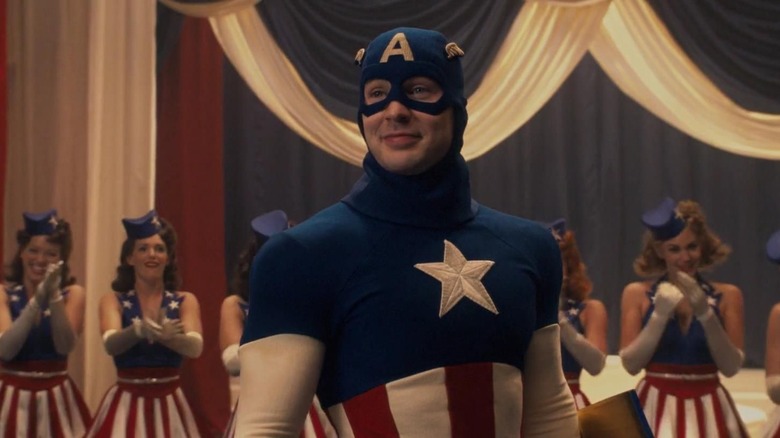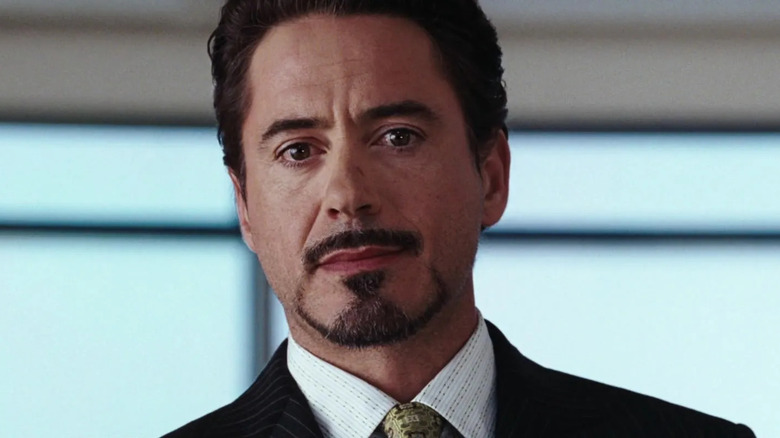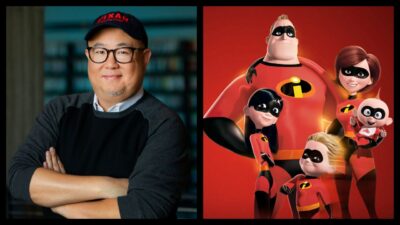Fans of the Marvel Cinematic Universe certainly like to witness a well-choreographed scrape between their favorite super-beings and the attacking menace du jour. Audiences, at least in the 2010s, enjoyed massive, hard-knuckle punch-ups to a degree that crushed the worldwide box office. People took the MCU very, very seriously and entire online ecosystems mushroomed under the canopy of their influence. Theories were often floated over which MCU characters might win in a potential fight. From 2008 until at least 2019, the MCU was the world’s most-read pop culture Bible.
But then, there’s something silly about one superhero turning to another on the battlefield and yelling “Hey, Steve!” or “Where’s Bruce?” The characters of the MCU usually refer to one another by their actual names rather than their superhero ones.
This sounds very odd to an old man like myself, who was raised on superhero comics wherein secret identities and alter egos were a vital, seemingly unshakable part of superhero lore. Spider-Man kept his face covered and never revealed his true identity to the world for fear that his enemies would be able to track him down or harm his loved ones. Batman remained in the shadows, offering the world vigilante justice in anonymity. Superman had to disguise himself as a human in order to live an ordinary life (though that changed in the CW series “Superman & Lois,” which may speak to a point I plan to address later on).
Secret identities are exciting for multiple reasons. For one, they make any hero’s story that much more dramatic; if they have to operate in secret, they will always be grappling with the parts of themselves they show the world and the parts they keep hidden. Secondarily, they make a hero seem that much more noble; if someone is enacting justice on a freelance basis, then they are clearly not doing so for recognition or financial reward. Thirdly, it inflames the imagination of a young reader. Is my dad Spider-Man? Could I be Spider-Man? You’d never know.
The MCU, however, largely discarded this idea from the jump, and there’s at least one reason why.
Marvel Studios boss Kevin Feige doesn’t like secret identities
Notably, at the end of Jon Favreau’s 2008 film “Iron Man” (which launched the MCU), Tony Stark (Robert Downey, Jr.) announced at a press conference that he was indeed Iron Man. This flew in the face of decades of comic book lore and provided a large, dramatic twist. Speaking with Bleeding Cool in 2013 (as /Film reported on at the time), Marvel Studios boss Kevin Feige explained that one of the reasons he allowed Tony’s identity revelation was that he was merely tired of the very notion of alter egos. As he put it:
“The one we haven’t done in the MCU is the secret identity thing. I thought that had been overplayed for a long time. Which is why we had Tony Stark out himself at the end of his first movie. We were sort of announcing to the audience that we’re not going to play that game.”
Some may have bristled at the idea of a superhero without a secret identity in 2008, but the MCU, moving forward, normalized the idea. The bulk of MCU movies have tended to eschew the real world anyway, with few scenes of their protagonists out doing everyday chores. And if superheroes were never going to be in the real world, why bother with superhero names? Iron Man was Tony. Captain America was Steve Rogers. The Black Widow was Nat(asha Romanoff). One can imagine the relief the MCU’s writers might’ve felt in not having to write any scenes of superheroes saying stuff like “I can’t let my mom find out” or having to invent excuses for not being home on time.
There are, of course, notable exceptions to this rule, as superheroes like Daredevil (Charlie Cox), Spider-Man (Tom Holland), and Ms. Marvel (Iman Vellani) strive to keep their true identities under-wraps in the MCU. Still, there may be a bigger factor at play here than the storytelling caprices of one executive. Indeed, the lack of secret identities in the MCU may reflect a palpable cultural shift in the way young people contemplate fame.
The MCU’s lack of secret identities may speak to a larger cultural shift
Recall that the bulk of the characters seen in the MCU were invented in the 1960s, long before the internet was a twinkle in Al Gore’s eye. They were extrapolated from literary heroes like the Scarlet Pimpernel and Zorro, who wore masks and kept their identities hidden from the wicked politicians and royal a-holes who would otherwise execute them. There was, in those stories, a nobility to staying hidden. The heroes wanted to be known for their good deeds. Fame and money were seen as crass and unseemly goals for a hero.
In 2008, however, a generation of kids had already been raised with smartphones, and the nature of fame had changed dramatically. In this century, people just put their entire lives on social media in a relaxed, natural fashion. They’re not just thirsty for “likes” (although “likes” certainly provide little endorphin hits), but it’s now plausible for someone to do a dance on TikTok and become famous by accident. One can even make a living as an influencer. The promise of the modern world is that fame lurks around every corner, so long as you stay visible and keep your personal “brand” active. The idea of staying offline and toiling in anonymity is anathema to many people. If you’re going to do something dramatic, you record that s*** and put it everywhere. (Don’t forget to like and subscribe.)
In that cultural milieu, the “secret identity” is almost unthinkable. By 2008, it was natural for a superhero to keep their face hidden. Now, many of the MCU heroes are basically well-licensed celebrities. Some of them may even hire publicists or resent that they’re less famous than their teammates. (Looking at you, Ant-Man.) Heck, Ms. Marvel even fashioned herself after her favorite hero, Captain Marvel (Brie Larson). There’s no need to hide your identity when being famous is a natural outcropping of life.
The mask-less heroes now fulfill a new power fantasy for young audiences. You can be a hero, kid, and you can also be famous and beloved.
Celebrity & Entertainment News: Latest Trends and Insights
Welcome to the vibrant world of celebrity and entertainment news. From the glitz of Hollywood to the rising stars of the music scene, we explore the latest events, trends, and insights that keep you connected with your favorite celebrities. Whether it’s breaking news from red carpet events, exclusive interviews, or the latest gossip, we have it covered. Join us as we delve into the fascinating realm of fame!
The Evolution of Celebrity Culture
The landscape of celebrity culture has undergone significant transformations over the years. In the past, celebrities were often seen as larger-than-life figures, living in glamorous isolation. Today, thanks to social media, celebrities have become more accessible to their fans. This change has not only altered how we consume entertainment but how we perceive fame itself.
The Impact of Social Media
Platforms like Instagram, Twitter, and TikTok have revolutionized the way fans connect with celebrities. Now, fans can receive real-time updates directly from their favorite stars, making celebrity news more immediate and interactive. This shift has created a more personal connection between fans and celebrities, fostering a community where engagement is key.
Rise of Influencers
With the advent of social media, we have witnessed the rise of influencers. These individuals, often discovered through platforms like YouTube or Instagram, have carved their own niche in the entertainment industry. Brands are now partnering with influencers to reach audiences in authentic ways, making them equivalent to traditional celebrities in many respects.
- Authenticity in connection with fans
- New opportunities for brands
- Expansion of content creation
Current Trends in Celebrity News
As we dive deep into the world of celebrity and entertainment news, several trends are shaping the industry:
Reality TV’s Ongoing Influence
Reality television continues to dominate ratings and influence popular culture. Celebrities like the Kardashians have built empires that extend far beyond the screen.
Music Collaborations
Collaborations between music artists have become a staple in the industry. This trend not only boosts visibility for emerging artists but also allows established artists to explore new genres.
Diversity and Representation
The demand for diversity in casting and storytelling has gained momentum. Productions are increasingly aware of the need to represent various voices and experiences, which reflects a broader cultural shift.
Did You Know?
Did you know that the highest-paid celebrity in 2021 was Dwayne “The Rock” Johnson, earning over $87 million? Celebrity incomes can be remarkable!
Exploring Celebrity Gossip
No celebrity news report is complete without a dash of gossip. Here are some trending stories:
Romantic Entanglements
From secret dates to confirmed relationships, celebrity romances often capture public curiosity. Recent rumors about A-list couples have made headlines, sparking debates among fans.
Controversies and Scandals
Scandals involving celebrities never seem to lose their allure. Whether it’s a disagreement at a red carpet event or controversial statements made on social media, the drama keeps fans engaged.
Upcoming Projects
With announcements of new movies, albums, and tours, celebrity updates keep fans anticipating what’s next. Knowing which stars are set to collaborate can drive excitement and discussions across platforms.
The Future of Celebrity News
As the entertainment landscape evolves, so does the way we consume news. With technology shaping our interactions, the future of celebrity and entertainment news looks bright.
Emerging Platforms
New media platforms continue to emerge, providing an array of content that fits various preferences. Short-form content, podcasts, and live streaming services are becoming staples in how we engage with celebrity news.
Augmented and Virtual Reality
The integration of augmented and virtual reality experiences offers fans unprecedented access into the lives of their favorite celebrities. Expect more interactive content that revolutionizes fan engagement.
Increased Focus on Mental Health
As the entertainment industry grows, there is a heightened awareness of mental health issues among celebrities. More stars are openly discussing their struggles, prompting important conversations about self-care and wellbeing.
FAQs about Celebrity & Entertainment News
What is the best way to keep updated on celebrity news?
The best way to stay updated is by following reputable entertainment news websites, social media accounts of your favorite stars, and subscribing to newsletters.
Are there reliable sources for celebrity gossip?
Yes, reliable sources include established entertainment news outlets like Variety, Entertainment Weekly, and credible online platforms.
How do social media platforms affect celebrity news?
Social media allows celebrities to connect directly with their fans, leading to quicker dissemination of news and a more personal relationship with audiences.
What should I do if I hear unsolicited celebrity gossip?
Always verify information with reputable sources before sharing. Misinformation can spread quickly, and being a responsible consumer of news is crucial.
Why do some celebrities avoid public engagement?
Many celebrities prioritize their privacy and mental health, opting to engage with fans only on their terms or through controlled environments.
2025-06-15 17:45:00
#MCU #Superheroes #Dont #Secret #Identities #SlashFilm




